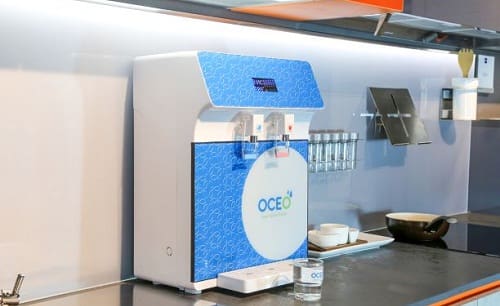Water pollution is a big issue nowadays. We as humans have practically made our waters non-drinkable for the most part. Can you drink water from any random pond today? Well, you can, if you’re immune to harmful bacteria that can cause diarrhea and multiple other waterborne diseases.
This is why a water purifier is a must in every home now. You do not have to go and draw water from municipality wells anymore; you can simply get your water purified and make it safe to drink. But the market is full of so many options, R.O., U.V., and whatnot, and a lot of people end up wondering, How do they protect us from waterborne diseases?

Well, that’s exactly what we’re going to address in this article. So, read till the end, before you go and pick your next water purifier.
The Hidden Risks in Household Water
First, we need to understand why you can’t drink your tap water. To understand this, you have to know TDS. TDS or Total Dissolved solvents is a metric that measures how impure the water is. TDS is measured with something called a TD meter, and the table below explains the optimal numbers as per WHO guidelines.
| TDS Level (ppm) | Description |
| 0 – 150 | Low TDS Water |
| 150 – 300 | Ideal TDS Water |
| 300 – 600 | Acceptable TDS Water |
| 600 – 1000 | High TDS Water |
| Above 1000 | Dangerous TDS Water |
So basically, any TDS above 600 is unacceptable, but according to MDPI, the average TDS in Indian households is almost 900, which reaches the dangerous levels by a huge margin. If you drink this water, you’re at risk of ingesting heavy metals like lead, arsenic, cadmium, etc. And bacteria like Salmonella, E coli can also be there. Some of these diseases can be fatal as well, making the use of a reliable water purifier an essential measure to ensure safe drinking water.
How Modern Purification Systems Work
This is why modern purification systems, commonly called water purifiers, are a must unless you’re ready to draw water from government wells, which we assume isn’t the case. Now, there are 4 types of water purifiers in today’s market.
- RO
- UV
- NF
- UF
Ideally, RO+UV should be chosen, as they filter out most pollutants and kill any harmful bacteria. But both RO+UF require electricity to run; NF does too, but UF doesn’t. But what purifier to pick? Follow the chart below to understand.
| TDS Level (ppm) | Recommended Purifier Type |
| TDS < 300 | UF + UV |
| 300 < TDS < 900 | NF + UV |
| TDS > 900 | RO + UV |
An average Indian house needs RO+UV mainly. Choosing the right kind of purifier is important, as it can be a serious health hazard to drink contaminated water with a high TDS.
Safeguarding Families from Disease
You’re not the only one who has ever been concerned about what’s truly in your drinking water. The truth is that microbes like bacteria, viruses, and even small protozoa are often hiding where we least expect them. They are responsible for diseases like cholera, dysentery, and typhoid. What scares me the most? You can’t see or taste them. That’s where appropriate purification comes in. It works like a quiet shield, catching things that our eyes can’t see.
Families have a lot to lose. Children and older adults are more at risk, and even one case of waterborne infection can turn life upside down. Here, technologies like UV and RO make a tremendous difference. UV light doesn’t only “zap” germs; it also messes up their DNA so they can’t proliferate. RO, on the other hand, can get rid of dissolved salts, heavy metals, and chemical residues that UV can’t.
The outcome? Less time off work, fewer late-night trips to the doctor, and a lot more peace of mind. Safe water isn’t just about keeping people from becoming sick; it’s also about keeping daily life from being interrupted.
Smart Features and Long-Term Reliability
Nowadays, water purifiers are equipped with various modern features that give you peace of mind. For example, features like TDS tracking, filter health indicators let you know when the purifier needs servicing and the filters need cleaning. Also, most modern purifiers come with auto-cleaning features, which make maintenance super easy and convenient.
Conclusion
To put it simply, purifiers are simply way too important to skip in today’s day and age. They’re the reason you can safely drink the water you store in your tank and don’t get infected with multiple diseases or heavy metal poisoning. A good RO+UV purifier can completely let you stay hydrated risk-free. Just make sure you’re picking the right purifier from a trusted brand, as there are a lot of fraudulent products on the market.
Santosh Kumar, the author behind IndiasStuffs.com, is passionate about sharing valuable insights on a variety of topics, including lifestyle, technology, and Indian culture.
Page Contents

